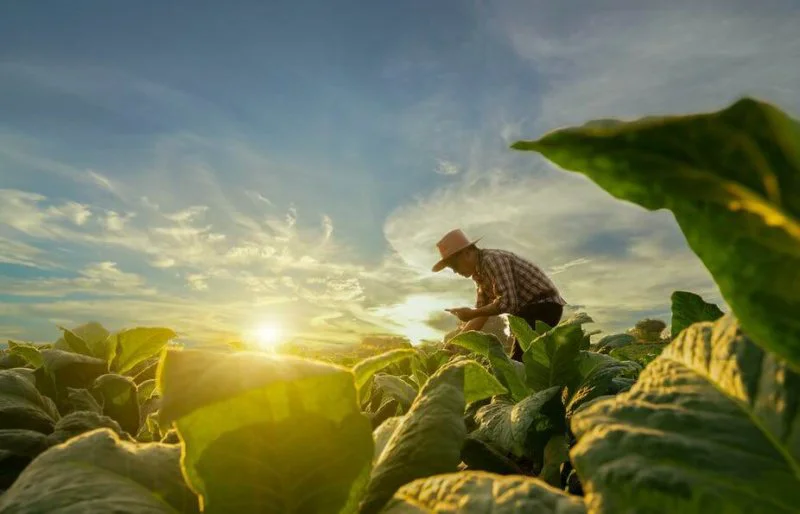Viewpoint: Gene edited crops key to addressing climate dislocation and sustainability challenges
Viewpoint: Gene edited crops key to addressing climate dislocation and sustainability challenges


Producing food for a population of nearly eight billion takes an enormous toll on the world’s fresh water supply. And because hundreds of millions around the world still face water vulnerability, nations feel forced to secure more of it from rainforests, wetlands, grasslands, and marshlands.
The promise of gene-edited crops is not just prettier or hardier produce, but reduced waste and, crucially, reduced land and water use: in other words, a smaller environmental footprint for agriculture the world over. It recognizes that in the 21st century, environmental sustainability is part of any serious discussions about improving agricultural productivity and efficiency.
Productivity and efficiency improvements will, ultimately, act in the service of the world’s biodiversity. The myriad of species of flora and fauna — especially in dense ecosystems like the Amazon rainforest — positively contributes to the global society’s quality of life. Everyone knows the balance of species, from great trees to microorganisms, provides ecological ballast to the whole planet.
…
Gene editing aligns and mutually reinforces the incentives of the earth and her inhabitants — more and better food, more and cleaner water, all the while safeguarding biodiversity. It is science at its best, a fellowship with nature, biodiversity, and agriculture.
This is an excerpt. Read the original post here.

 | Videos | More... |

Video: Nuclear energy will destroy us? Global warming is an existential threat? Chemicals are massacring bees? Donate to the Green Industrial Complex!
 | Bees & Pollinators | More... |

GLP podcast: Science journalism is a mess. Here’s how to fix it

Mosquito massacre: Can we safely tackle malaria with a CRISPR gene drive?

Are we facing an ‘Insect Apocalypse’ caused by ‘intensive, industrial’ farming and agricultural chemicals? The media say yes; Science says ‘no’
 | Infographics | More... |

Infographic: Global regulatory and health research agencies on whether glyphosate causes cancer
 | GMO FAQs | More... |

Why is there controversy over GMO foods but not GMO drugs?

How are GMOs labeled around the world?

How does genetic engineering differ from conventional breeding?
 | GLP Profiles | More... |

Alex Jones: Right-wing conspiracy theorist stokes fear of GMOs, pesticides to sell ‘health supplements’




 Viewpoint — Fact checking MAHA mythmakers: How wellness influencers and RFK, Jr. undermine American science and health
Viewpoint — Fact checking MAHA mythmakers: How wellness influencers and RFK, Jr. undermine American science and health Viewpoint: Video — Big Solar is gobbling up productive agricultural land and hurting farmers yet providing little energy or sustainabilty gains
Viewpoint: Video — Big Solar is gobbling up productive agricultural land and hurting farmers yet providing little energy or sustainabilty gains Trust issues: What happens when therapists use ChatGPT?
Trust issues: What happens when therapists use ChatGPT? Fighting deforestation with CO2: Biotechnology breakthrough creates sustainable palm oil alternative for cosmetics
Fighting deforestation with CO2: Biotechnology breakthrough creates sustainable palm oil alternative for cosmetics California, Washington, Oregon forge immunization alliance to safeguard vaccine access against federal undermining
California, Washington, Oregon forge immunization alliance to safeguard vaccine access against federal undermining 30-year-old tomato line shows genetic resistance to devastating virus
30-year-old tomato line shows genetic resistance to devastating virus The free-range chicken dilemma: Better for birds, but with substantial costs
The free-range chicken dilemma: Better for birds, but with substantial costs ‘You have to treat the brain first’: Rethinking chronic pain with Sanjay Gupta
‘You have to treat the brain first’: Rethinking chronic pain with Sanjay Gupta
